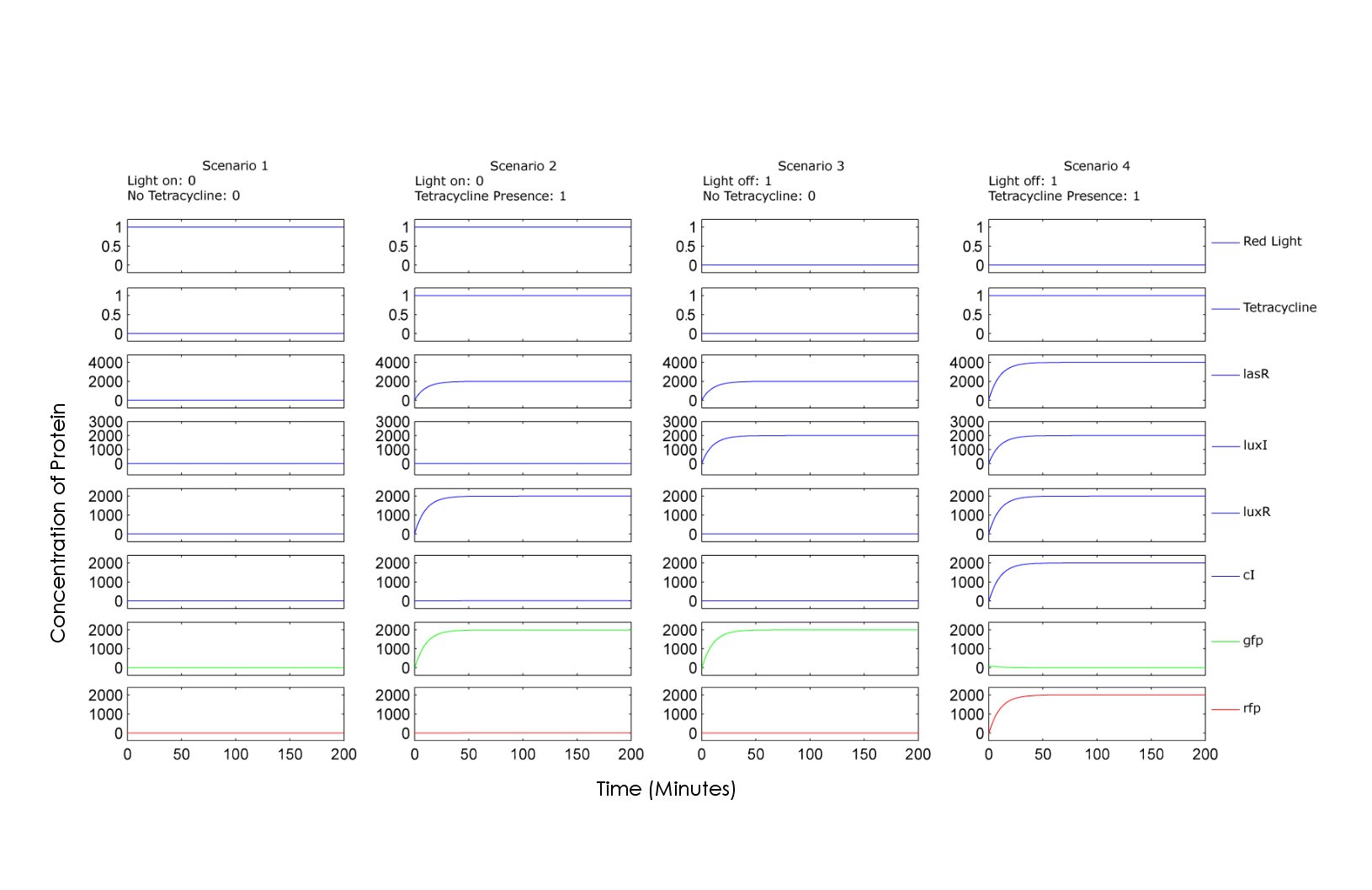Modelling
From 2007.igem.org
(Difference between revisions)
(→Mathematical Model) |
(→Mathematical Model) |
||
| Line 1: | Line 1: | ||
| - | ===Mathematical | + | ===Mathematical Modelling=== |
To create a predictive model, we used a set of differential equations to graph the approximate concentrations of each chemical with respect to time. These graphs are intended to illustrate the relative concentrations of the chemicals involved for each possible combination of inputs. The first quarter of the graph (t=0 to 500) illustrates the concentration of chemicals when adding 0+0; the second quarter (t=500 to 1000) illustrates the 0+1 case; the third quarter illustrates the 1+0 case; and the fourth quarter the 1+1 case. | To create a predictive model, we used a set of differential equations to graph the approximate concentrations of each chemical with respect to time. These graphs are intended to illustrate the relative concentrations of the chemicals involved for each possible combination of inputs. The first quarter of the graph (t=0 to 500) illustrates the concentration of chemicals when adding 0+0; the second quarter (t=500 to 1000) illustrates the 0+1 case; the third quarter illustrates the 1+0 case; and the fourth quarter the 1+1 case. | ||
Revision as of 11:44, 26 October 2007
Mathematical Modelling
To create a predictive model, we used a set of differential equations to graph the approximate concentrations of each chemical with respect to time. These graphs are intended to illustrate the relative concentrations of the chemicals involved for each possible combination of inputs. The first quarter of the graph (t=0 to 500) illustrates the concentration of chemicals when adding 0+0; the second quarter (t=500 to 1000) illustrates the 0+1 case; the third quarter illustrates the 1+0 case; and the fourth quarter the 1+1 case.
Measurements
//TBD

